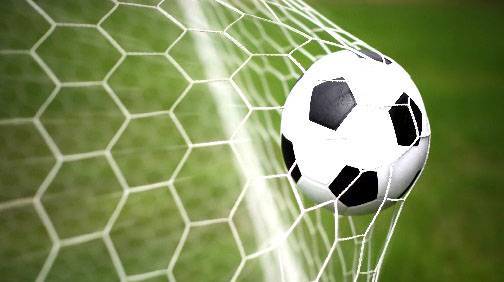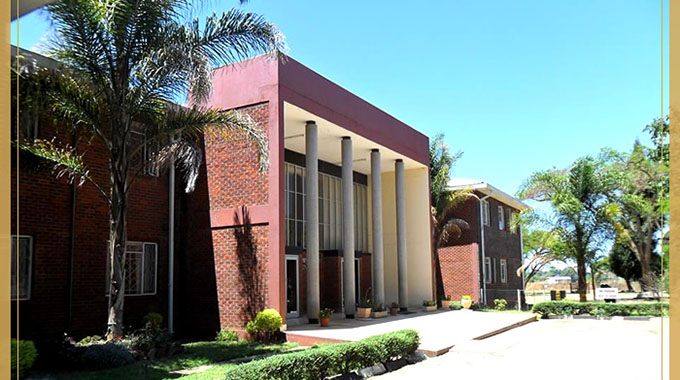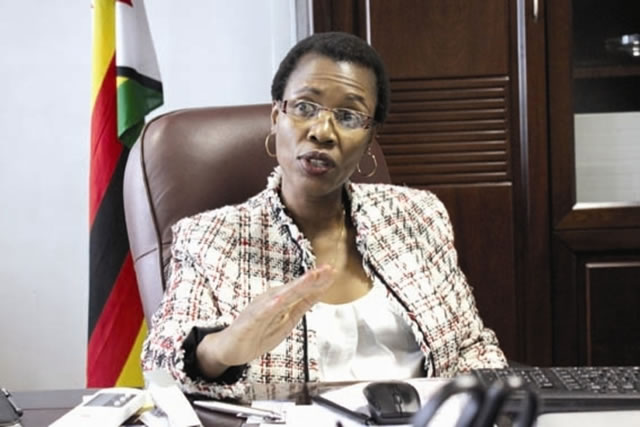Sharuko On Saturday – So we went to Ghana, riding on a wave of words

Dingi Ntuli
Special Guest
WHERE do I start, trying to fill the shoes of the occupant of this space, trying to make sure his constituency accepts that, for this week only, I’m his privileged guest?
Will they embrace me?
My name is Dingi Ntuli and I’m the Sports Editor of the Chronicle newspaper.
Just like every journalist, I have my unique experience, and perspective and, along the way, I have met thousands of interesting people.
The fellow, who has been writing on this space for the last 21 years, transforming this blog as the longest-running sports column in the history of this 130-year-old beast of a newspaper, if not in the history of newspapers in this country, is one of those folks.
In recent weeks, Robson Sharuko, has been dishing out instalments about his departed colleagues — Alan Hlatywayo, Tinaye Garande, Assel Gwekwerere, Phillip Magwaza, Tendai Ndemera, Lovemore Musharavati, Ephraim Masiiwa, to name but a few.
He has been telling all of us how these guys provided a huge impact on his career, in which he has been working for The Herald, for 29 years now.
Hlatywayo was the first black Sports Editor of The Herald, which gives him pride of place, for all of us, who have followed suit, in this profession.
After reading the recent piece on Garande, I found myself going down memory lane, and retracing my footsteps, to the very first day, I started my journey as a journalist.
And, it made me ask myself whether we have to wait for someone to die, for us to recognise how influential they were, to so many people, including us, in one way or another?
That’s what inspired me to write this piece, about a man who has been central, in shaping my journey, which started on the Sports Desk of The Herald.
Although, I am now an all-rounder, who has written on different beats for the past 22 years, I’m first, and foremost, a sports journalist because that’s where I cut my teeth in this profession.
I grew up reading newspapers, and belong to that generation which competed in making a collection of interesting sports and entertainment stories, which we used to cut and paste, in old exercise books.
But, after enrolling as a Mass Communications student at the journalism school in Harare, I began to take a keen interest in sports articles, which were written by Sharuko.
I had grown up watching Highlanders at Barbourfields, but now I was also able to watch them playing at Rufaro, the National Sports Stadium and Gwanzura, something which I had only previously read about.
Sharuko’s match reports, previews and reviews always excited me and I kept finding myself discussing his articles with my classmates every morning after picking up our newspapers from the Mass Communications office at the Journalism School.
He always seemed to be in the right place, at the right time, talking to the right people and accurately, and stylishly, wrote his stories which kept leaving me in awe.
He seemed to understand the nuance of words, and possessed a unique writing style which presented his ideas, in digestible ways for readers from all walks of life.
I could almost visualise what he wrote about, especially the football match reports.
He became something like my “Sports Bible” because he wrote with authority, whether criticising or hailing, any subject matter.
And, one article of Friday July 11, 1997, in which he described the training ground, which the Warriors were forced to train on in Accra, ahead of an AFCON qualifier against Ghana, still rings a bell.
I’ll just share one paragraph, which has vividly remained on my mind since I read the story, 24 years ago:
“On a small cleared field, in the middle of a dense forest just opposite the University of Ghana, the Warriors found themselves sweating it out, at a training session that could easily have passed for a game between ancient tribes, who lived in the forest,’’ read the introduction to the article.
My fertile student imagination, back then, could now visualise the Warriors’ players, topless and barefoot, training with a ball made from plastic papers, just like boys in the village used to do, at any open space they found in the forest, while herding cattle.
The Warriors lost the qualifier, 1-2, but the result had long lost its relevance, forgotten in the wave of fury, triggered by how our boys had been ill-treated, with many Zimbabweans condemning the state of the pitch, our boys had been forced to train on.
The article was so powerful, we all felt like we had seen that training ground and, the more we visualised it, creating a picture from the words we had read in his report, the more the anger, which built within us.
We had been hypnotised, by the power of the words, and somehow we had been taken on a ride from Zimbabwe to Ghana, some 4 000 kms away, to a place where we could see that poor training pitch, and curse our hosts for their poor ill-treatment of our boys.
The sheer power of words had taken us on a journey where we now stood with our boys, as they cried foul, and we even forgave them, when they lost.
OKAY, LET’S START FROM THE BEGINNING
Two years later, we met.
That was at the beginning of 1999 and I had been seconded to The Herald, as an intern, where my first love was to join the news pool.
However, I ended up joining the sports section and, on my first day, found myself in the presence of the man who had been writing my favourite sports articles.
And, after seeing his huge frame, I then could understand why he was able to stand his ground, in Accra, where he refused to apologise to Ghanaian authorities, even under the threat of deportation.
When I arrived at The Herald, for my attachment, Jahoor Omar was winding up his tenure as Sports Editor, the late Sam Marisa was Deputy Sports Editor, Sharuko and Colin Matiza were Senior Sports Reporters, while Petros Kausiyo was the junior in the team.
I was initially excited at being in the presence of these fine sports writers but was downcast when told that I should forget writing about football because most of the guys were already on that beat.
One day, Sharuko overheard me talking on the phone and was quite fascinated by my command of deep Karanga.
He started talking to me regularly, and assigned me to work on stories which the senior reporters wouldn’t touch.
What I liked most was that he emphasised to me that sport was not all about football and then told me I could make it in journalism if I ensured the content I wrote was accurate and something readers would like to read.
He pointed out they were looking for someone different, not just another football reporter, and if I could offer them that, then I would become a member of the team.
Those words were like a kiss of life to me.
The newsroom is not an easy place for the recruits, it can be exhausting, frustrating and humbling because stories are usually hard to come by for a student.
I hadn’t cultivated any sources to sustain the requirements of a huge daily newspaper but I used my willingness to learn and every small story I wrote provided the fuel to carry me through another day.
Sharuko became my pillar of strength, the one I always turned to for advice, and now and again, he would be there for me.
I had read, and appreciated that being a journalist is great public education, it’s one of the few professions that allow people to educate you in public.
My internship was quite brief, due to student disturbances of 1998 that caused the closure of all tertiary institutions in the country, for eight months.
But, I left The Herald Sports Desk with an invitation to return, and continue from where I had left off, after writing my final examinations.
When I returned, Big Sam was now in charge, after Omar had left.
Sharuko would call me to sit me by his side, as he edited my articles, trying to make them make sense and I always marvelled at the way he sharpened my little stories, and all the credit would come to me, at the end of the day.
I would take my raw version of the article, compare it with the one which appeared in the newspaper and, again and again, spend time working on my weaknesses.
In a way, it made me who I am today, thanks to the contribution of this big guy from Chakari.
ZVENYIKA, THE BIG BREAK AND A DANCE WITH THE GENTLEMEN’S GAME
My favourite days were Sundays because it was an informal day and I also got to watch live football at the stadium.
I would get to the newsroom early in the morning, and try to write at least one article before Sharuko and the other senior reporters came in, for their duty.
This trick gave me my first big story.
I happened to be the only reporter in The Herald newsroom, one early Sunday morning, when the phone rang.
I answered it and, the person on the other end, told me two-time Commonwealth flyweight boxing champion Alfonso Zvenyika had attempted to take his life, following a domestic dispute.
Mosquito had only bagged his Commonwealth title, after beating Scottish boxer Paul Weir at the beginning of 1998, and now he wanted to commit suicide!
This was huge!
I went to Zvenyika’s Mbare home and confirmed the boxer had, indeed, attempted to end his life by taking an overdose of malaria tablets.
I went back and wrote the story, as best as I could and, needless to say, when Sharuko edited it, he turned it into the lead story of the day.
In my small world, I had finally arrived with the helping hand of both fate and someone who had always been my role model.
That my biggest article was not football-related, confirmed to me that Sharuko was right, when he told me, when I first arrived, it wasn’t all about the beautiful game.
So, that’s how my relationship with swimming began and my best places became the Les Brown Swimming Pool and the Chitungwiza Aquatic Complex.
I then realised The Herald was using a correspondent’s cricket articles and decided I would fill that gap and, with the encouragement of Sharuko, I took on that beat.
My first reports were about the domestic league and then came the big international matches.
And, here I was now, sitting in the media centre at Harare Sports Club, in the company of all the international cricket journalists, with global reputations of excellence, feeling a part of them, covering Test matches.
At times, I was the only black journalist there but my mentor kept telling me it was just a question of colour, there was no reason to feel inferior.
So, I got to cover great cricket sides like South Africa, Australia, India and Sri Lanka and I interviewed great cricketers such as Hansie Cronje, the Waugh brothers, Steve and Mark, as well as leg-spinner Shane Warne.
Interacting with the great Muttiah Muralitharan, and other top cricketers of his generation, were the highlight of stint as a sports reporter at The Herald.
I was there when Steve Waugh summoned all his fielders to form a nine-man slip cordon, when Damien Fleming was bowling to David Mutendera, at Harare Sports Club.
It’s an image, in cricket history, worth its value in gold.
By then, Sharuko was now the Sports Editor and he ordered me to write exclusively on cricket because, he said, there was so much potential in this game, we needed to give it as much coverage as football.
Back then, no one would have believed us because cricket was considered a small minority sport but, today, it has become the giant discipline, which he saw, back in those years.
But, it wasn’t an easy job, cricket was an Old Boys Club, talented black cricketers like twins Everton and Darlington Matambanadzo, Mutendera and others, had to work extra hard, just to be called up.
Their white counterparts, in contrast, with poor statistics, always made it into the sides.
That led to my ugly confrontation with Grant Flower, at Harare Sports Club, after one poor display by the national team.
Grant was angry because of my reports. He virtually wanted to manhandle me, and had to be restrained by his older brother, Andy.
Grant felt I lacked the depth to report on cricket, saying I had never held a cricket bat in my life.
It was the old stereotype, because I was black, which meant this wasn’t my game.
Sharuko intervened, took Grant head on, after that incident and The Herald continued to call for the inclusion of more black players in the side.
Inevitably, the cricket authorities acted and doors were opened to the majority of black cricketers.
I was eventually assigned to cover football matches, after consolidating my cricket beat.
One game at the National Sports Stadium comes to my mind.
About 10 minutes before kick-off, three owls flew and landed at the centre circle, and with our football pregnant with stories about the use of juju, fans were convinced the owls were there for that purpose.
They flew away as the players made their way on to the pitch from the dressing rooms.
Three quarters of my story was about those owls and fans’ reaction and the readers loved it.
There were also sad events, like the death of 13 fans in the stampede at the giant stadium and, interviewing people looking for their missing relatives, at Parirenyatwa Hospital mortuary, was heart breaking, especially when they found the bodies.
It’s been a journey for me, 22 years now, but I will always remember my first byline in The Herald.
I’m not sure I would be here today, mentoring a generation of local journalists, had I not spent those 20 months, in the company of someone, who really cared for my future.
As he always ends his blog, let me also say to God be the Glory.
Dingi Ntuli is the Sports Editor of the Chronicle and is a guest writer in today’s instalment of the ‘Sharuko On Saturday’ blog, peace to the GEPA Chief, the Big Fish and all the Chakariboys still in the struggle, to God be the Glory, Come on Warriors, Khamaldinhooooo!











Comments